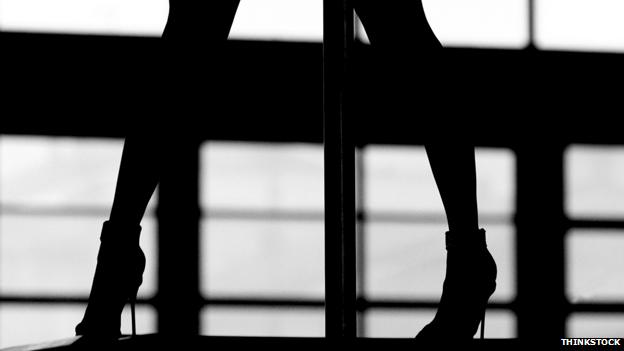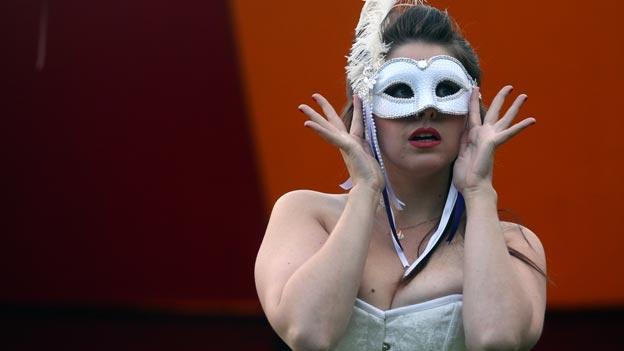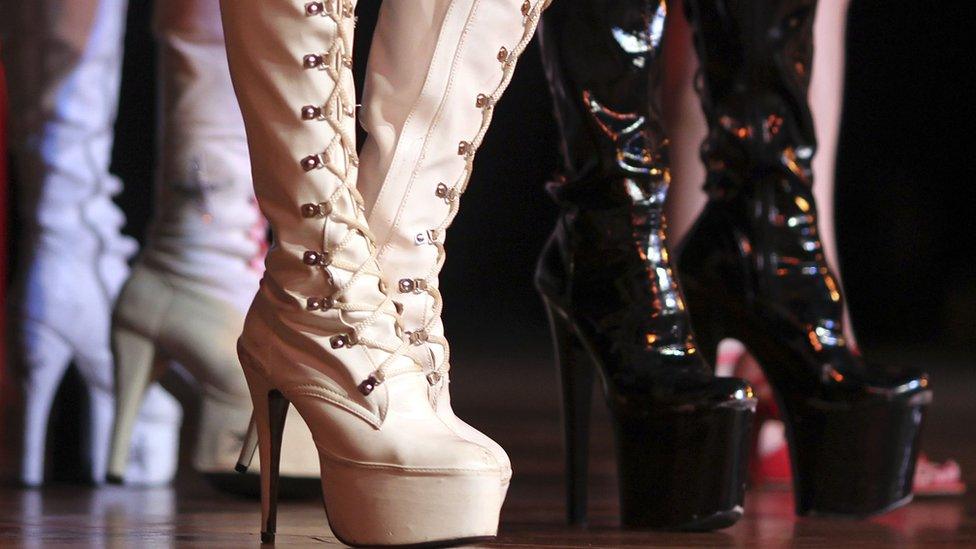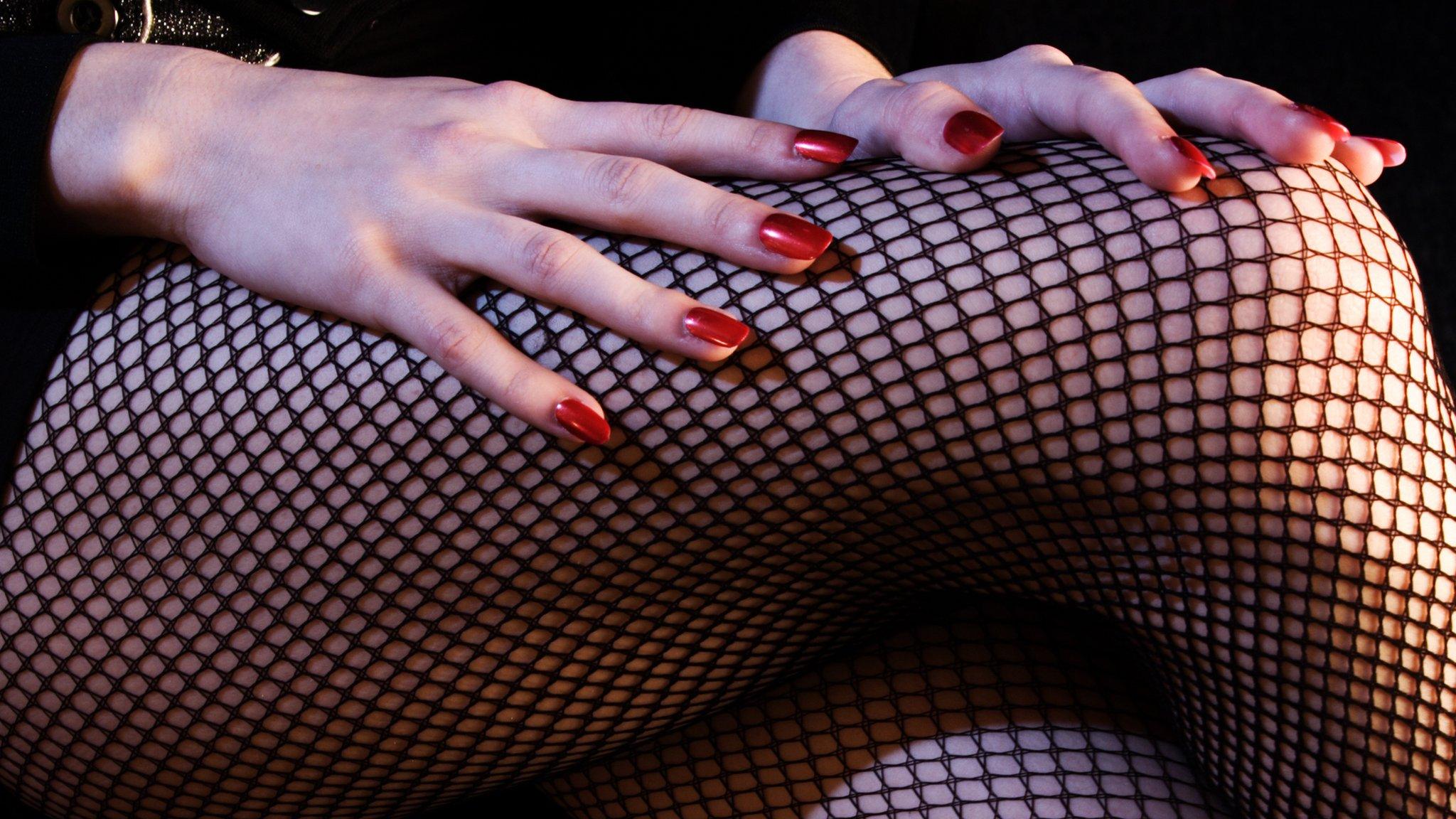Sex work expert calls for lap dancing club restrictions in Scotland
- Published

Lap dancing clubs were discussed by MSPs sitting on Scottish Parliament committee
National restrictions should be imposed on Scotland's strip clubs to prevent new brothels being opened, an expert has advised MSPs.
Sex work expert Prof Phil Hubbard said there was an inconsistent approach in England and Wales leading to appeals over the refusal of licences.
But the strip clubs' trade association warned against imposing a "draconian regime" on local authorities.
The comment came as parliament was considering new licensing legislation, external.
Prof Hubbard, from Kent University, told the Scottish Parliament's local government committee: "What we have in England and Wales is a situation that I would like to see avoided in Scotland, where we have a licensing regime for these establishments in one local authority but not in a neighbouring one."
He added: "We have a situation where some local authorities will ban nudity and others will not.
"The whole situation has led to a whole range of appeal cases and litigation in which legal unreasonableness and inconsistency have been raised as valid concerns, and some of these appeals have been upheld."
Prof Hubbard also said tough regulations were needed to restrict massage parlour owners from effectively licensing their premises as brothels.
His comments were backed by Zero Tolerance, which campaigns to reduce violence against women.
Local decisions
Co-director Laura Thomson said sexual entertainment was linked to prostitution, adding: "Women involved in prostitution are much more likely to be victims of violence, women feel unsafe around the venues, women working in the venues face abuse and harassment."
However, Janet Hood, licensing specialist at the Association of Licensed Adult Entertainment Venues Scotland, warned against a one-size-fits-all approach for councils.
She said the one-time ban on religious comedy film Life of Brian in Glasgow, external was an example of the diverse moral sensibilities in Scotland's communities.
Ms Hood argued: "We have to allow for local decision making, whether it is for sexual entertainment venues, alcohol licensing or any other form of licensing.
"I don't think it should be the purpose of the Scottish government to try to impose a draconian regime that had to be followed by elected members who are considering the requirements of what should happen in their communities."
- Published31 July 2013

- Published24 June 2013

- Published8 February 2012
